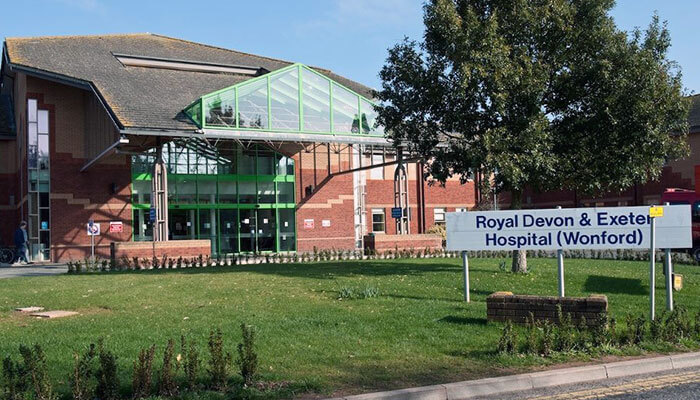Introduction
The Royal Devon and Exeter NHS Foundation Trust (RD&E) provides integrated health and care services across Exeter and East and Mid Devon. With about 8,000 staff, it manages a large acute teaching hospital, twelve community sites and provides acute and community services to a core population of over 450,000.
Challenge
The critical care out-of-hours inter-hospital transfer team provides a specialist doctor to allow a ‘time critical’ patient to be transferred in order to access a specialist service within the south west peninsula critical care network. When a patient needs to be transferred on a time critical basis, it requires significant clinical and logistical planning. With very limited notice at any time of day or night makes planning for this very difficult.
During out-of-hours there are a reduced number of critical care staff on duty and a doctor from intensive care or anaesthetics is needed to undertake the transfer. A doctor drawn from the onsite staff has knock on consequences by spreading staff more thinly.
Solution
As part of a quality and safety improvement project a voluntary out-of-hours transfer team was set up, who could be called in from home to undertake the transfer, minimising the delay in transferring a patient, and also not affecting staffing levels when an unpredictable time critical transfer is needed.
The customer deployed the Crises Control platform to support the out-of-hours transfer team with communications via SMS, telephone call and push notification. The administrator who activates the team is able to track who has received the alert, their response and their arrival status.
Customer Q&A with the Dr James Garwood, Lead for Critical Care Department’s Out-of-Hours Inter-Hospital Transfer Team
What value does Crises Control provide to you?
We found that mobilising the team at night often was difficult, having to ring down a list of team members added extra delays to the system of mobilising them when time is of the essence. By deploying Crises Control it has allowed us to reach all team members by multiple media channels (phone call, SMS, and Push Notifications) at the touch of a button with minimal delay.
The team members also have the ability to choose via the app to be ‘not be on duty’, which means they won’t get disturbed if not rostered to be on call.
The administrator who activates the team is able to track who has received the alert, what their response is, and the ability to track them real time on their way into the hospital, and also as an added safety feature can track them during the time critical transfer, so we can ensure they arrive safely at the destination hospital.
How can other UK public sector agencies purchase the platform?
Crises Control has been approved by the Crown Commercial Service and is listed on the UK Government Digital Marketplace through the G-Cloud 12 framework, making it easily available to all UK public sector organisations.
What is the relationship like with the Crises Control account team?
We have a very close relationship with our Crises Control account team. Our Customer Success Manager at Crises Control is always looking to make sure that we are utilizing the platform to its fullest extent and they also provide 24/7 helpdesk support to rapidly resolve and technical and user questions.
“Crises Control has helped us improve our team communication, response and activation times.”
Dr James Garwood
Lead for Critical Care Department’s Out-of-Hours Inter-Hospital Transfer Team, RD&E













